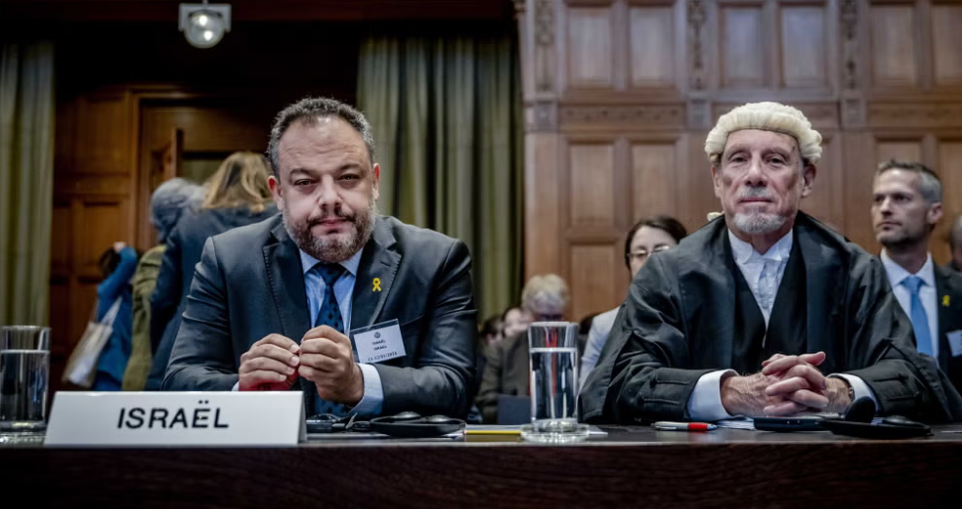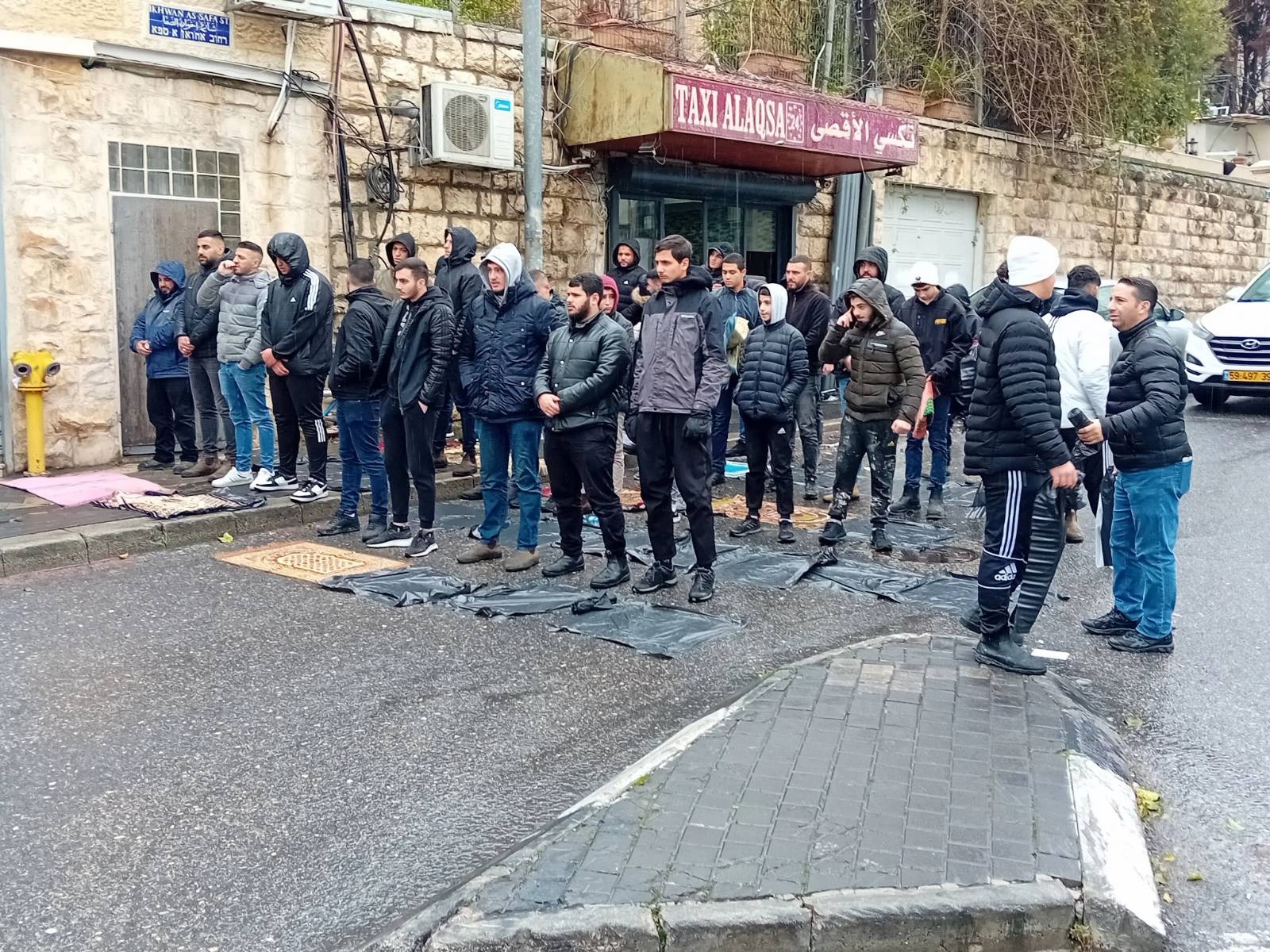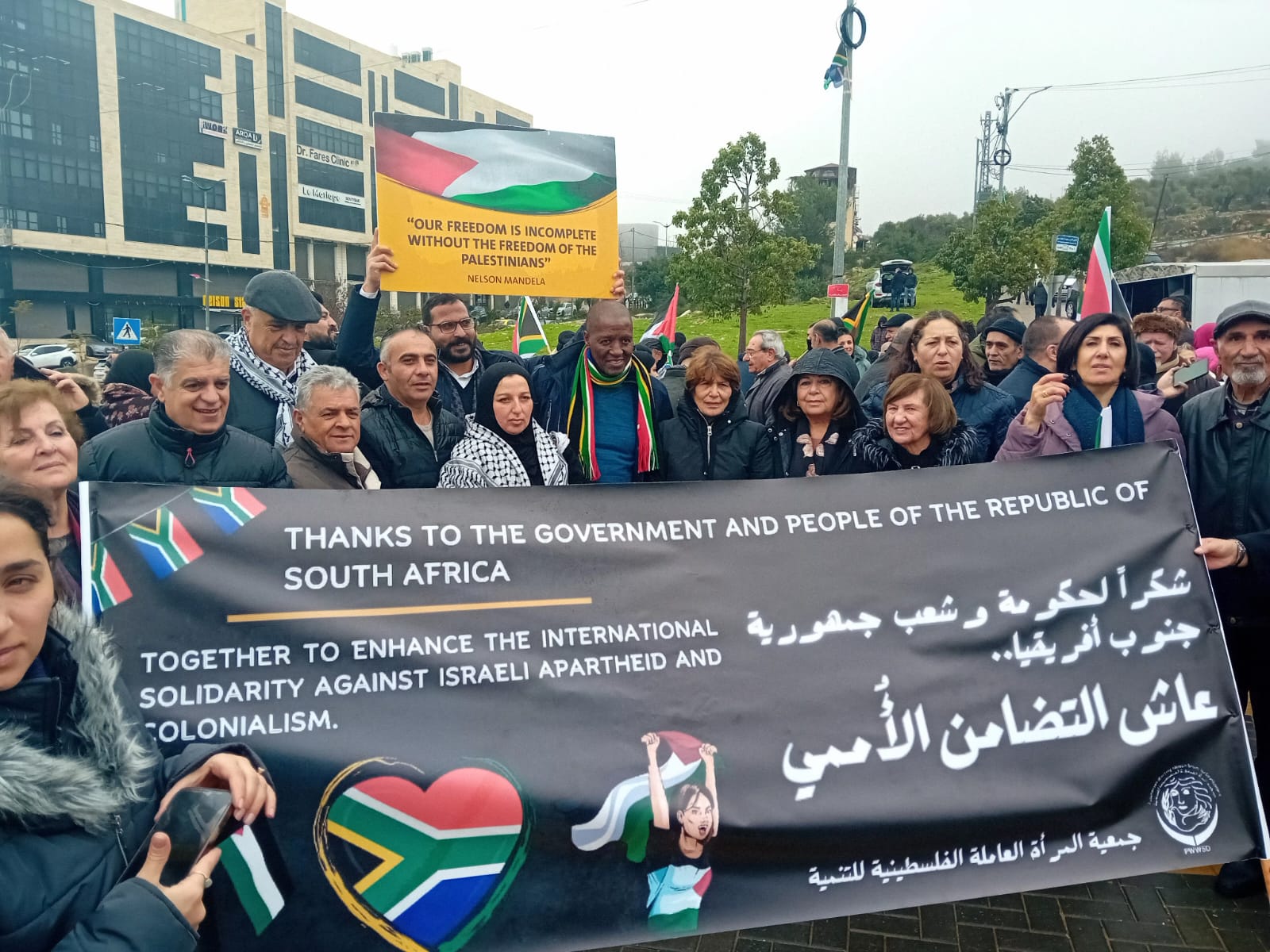-
ICJ Day 2: Dismantling Israel’s Defense on Genocide Charge
12 January 2024 | International Solidarity Movement | The Hague, Netherlands One day after a chilling presentation by South Africa’s legal team, constructing a sweeping case against Israel for genocidal intent and acts amounting to genocide of the Palestinian population in Gaza, Israel took its place before the 15 judge panel to try […]
-
Muslim worshippers continue to be blocked from Al Aqsa Mosque
12 January 2024 | International Solidarity Movement | East Jerusalem Video showing the attack by the IOF on worshippers at Wadi Al Joz. Credit: ISM The arbitrary restrictions on Palestinian Muslims accessing the holy site in Jerusalem for prayers have now been in place for over four months. These restrictions continue to be imposed […]
-
“A Place of Death and Despair.” South Africa Makes a Case for Genocide in the ICJ
11 January 2024 | International Solidarity Movement | The Hague, Netherlands It came through a series of damning statements. A striking case for genocidal intent and acts tantamount to genocide by Israel against the totality of Gaza’s Palestinian population, was presented in a powerful, if gut wrenching, presentation by South Africa’s legal […]
Action Alert An Nabi Saleh Apartheid Wall Arrests BDS Bethlehem Bil'in Cast Lead Demonstration Denial of Entry Ethnic Cleansing Farmers Gaza Global Actions Hebron House Demolition International law Israeli Army Jerusalem Live Ammunition Nablus Ni'lin Prisoner Ramallah Rubber-coated steel bullets Settlement Settlers Settler violence Tear-Gas Canister Video



